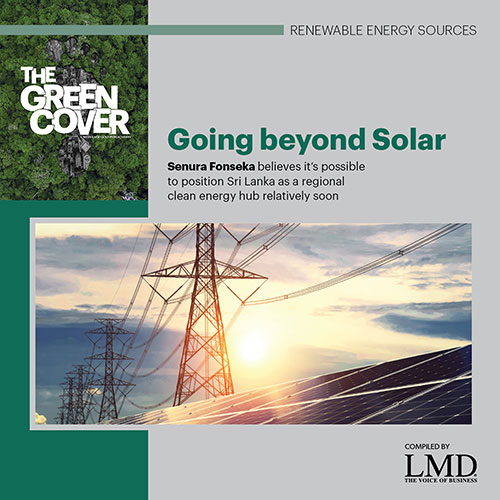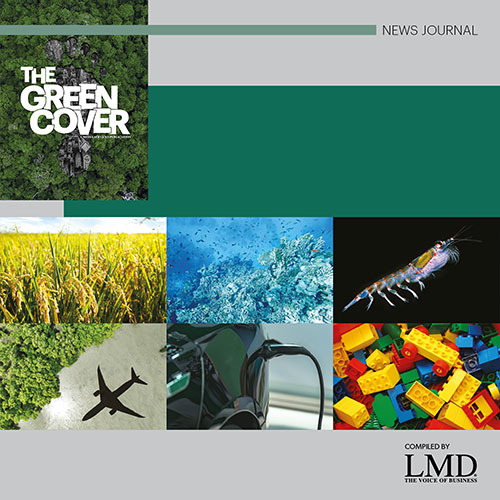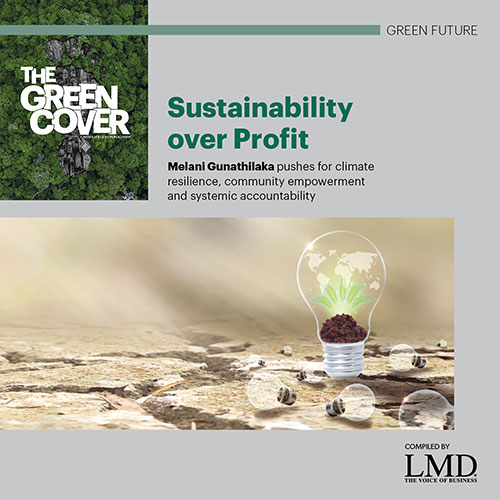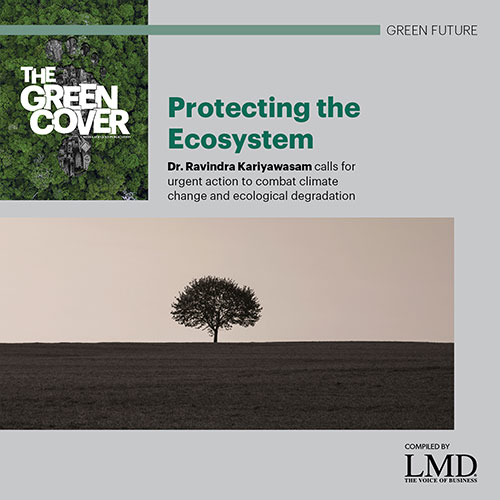THE 3Rs OF REDEMPTION FOR CONSUMERISM
The Hierarchy of Waste
Dona Senara and Isanka Perera discuss a critical success factor in solid waste management
Garbage in the streets, clogged drainage channels and canals, and the spread of insect and waterborne diseases like dengue are some of the many consequences of improper waste management. Open solid waste dumps are a primary source of a highly contaminated pollutant liquid called leachate, and greenhouse gases such as methane and carbon dioxide.
Sri Lanka has been grappling with the issue of waste management for several decades. The massive open dump at Meethotamulla, which collapsed onto the surrounding areas resulting in 32 deaths and displacing 1,765 people, and extensively damaged 145 houses, only emphasised the dire need for sustainable waste management.
The 3R concept (the principle of reducing waste, reusing and recycling resources and products) is part of the waste hierarchy, which ranks waste management options according to what is best for the environment. It promotes environmental conservation by generating the minimum amount of waste through a priority approach and comes with a set of economic benefits.
REDUCE In terms of waste management, nipping it in the bud is always the most fundamental, yet often overlooked, option. For a waste minimisation programme to be effective however, it’s essential for everyone – from suppliers, manufacturers and distributors, to retailers and the end consumer – to come together.
Favoured for its economic advantage, ‘reduce’ promotes efficient utilisation of raw materials, which leads to higher productivity – viz. better competitiveness, environmental and natural resource preservation, and boosted profits.
REUSE Taking a product that would otherwise be discarded and using it again in its current form, or with a few repairs or changes, either for the same purpose or a different purpose, drastically reduces the amount of material that will eventually be despatched to either landfills or recycling centres.
This is a beneficial strategy for effective water usage, ecological footprint reduction, preventing wasteful disposal of resources, additional expenses reduction and more. Even though cleaning and modifying costs time, reusing is preferable to recycling as the product does not need to be reprocessed before it can be used again, which reduces both cost and the environmental impact.
RECYCLE Collecting used products, processing them mechanically and chemically, and remanufacturing them into new products is a way to manage waste materials once they have been generated and cannot be reused.
‘Recycle’ has become the most popular and marketable means of waste management whereby the optimum economic value of a certain material can be derived. Although recycling consumes energy, water and other resources, and causes pollution, this is far less than that created by manufacturing the same product with fresh materials.
These practices have proved feasible for waste management globally – most evidently in Denmark, Japan and Germany. Yet, sustainable implementation of the 3Rs approach requires economic drivers especially funding availability and economic encouragement, in addition to policies designed to enable and incentivise resource efficiency and waste minimisation.
Ensuring participation in these activities is beneficial to the good market price of recyclables and other economic incentives, and has been strategically proven effective in Japan where plastic bottles for recycling received monetary rewards. Similarly, returned deposits influenced comparable practices in Korea and Singapore.
Due to the rise in the domestic consumption of electric devices, electronic waste – or e-waste – that can be described as discarded, obsolete, or broken electrical or electronic devices, is a rapidly developing environmental problem in several nations – including Sri Lanka.
Consequently, many nations have initiated Extended Producer Responsibility (EPR) based policies for e-waste management in which producers are given a significant responsibility for post consumption product disposal. Today’s rising resource demands and economic growth require nations to urgently focus, and invest further in environmental conservation and integration of economic enhancements.
Therefore, the 3Rs would contribute significantly, to saving energy and natural resources while benefiting resource management and environmental objectives that promote economic sustainable development with competitiveness worldwide.









